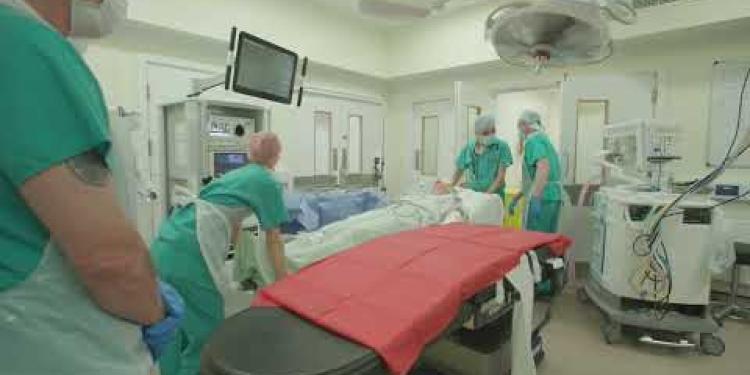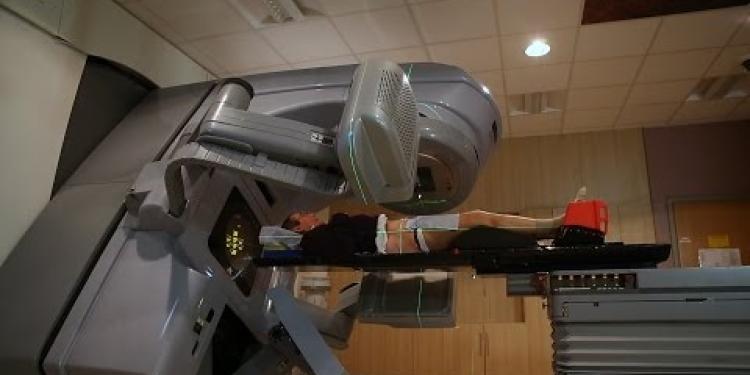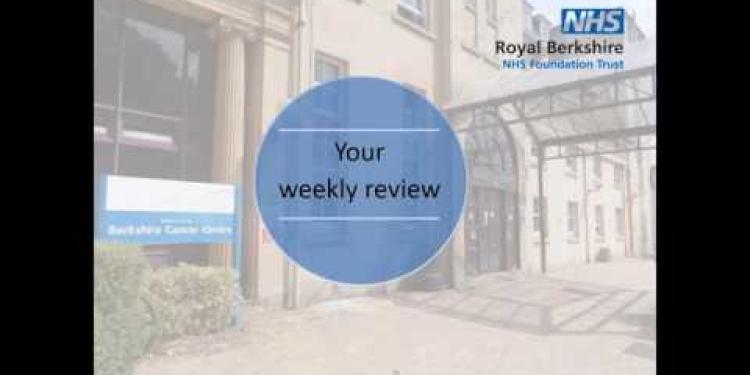Important Information On Using This Service
- Ergsy carefully checks the information in the videos we provide here.
- Videos shown by YouTube after a video has completed have NOT been reviewed by ERGSY.
- To view, click the arrow in the center of the video.
Using Subtitles and Closed Captions
- Most of the videos you find here will have subtitles and/or closed captions available.
- You may need to turn these on and choose your preferred language.
Turn Captions On or Off
- Go to the video you'd like to watch.
- If closed captions (CC) are available, settings will be visible on the bottom right of the video player.
- To turn on captions, click settings.
- To turn off captions, click settings again.
Find A Professional
More Items From Ergsy search
-
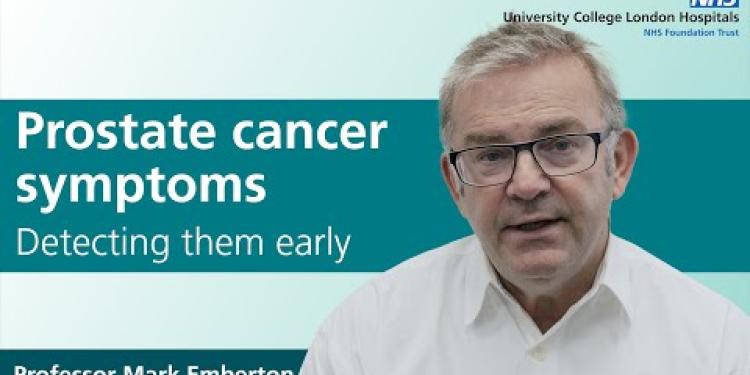
Prostate cancer symptoms - detecting them early
Relevance: 100%
-

Prostate cancer diagnosis and tests
Relevance: 93%
-

Why do men get prostate cancer?
Relevance: 92%
-

Treating prostate cancer
Relevance: 89%
-

What is Prostate Cancer?
Relevance: 88%
-

Bowel cancer - Symptoms and signs to look out for
Relevance: 84%
-

Worried about signs that could be cancer? Contact your GP practice | NHS
Relevance: 79%
-

Living with prostate cancer
Relevance: 73%
-
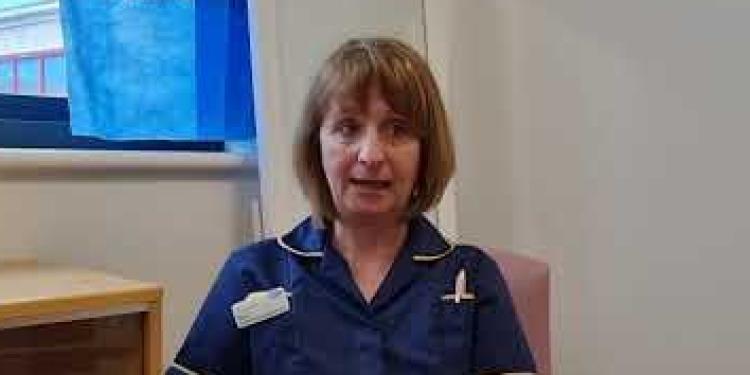
Ovarian cancer - signs and symptoms to look out for
Relevance: 71%
-

Ovarian Cancer
Relevance: 70%
-

Get cancer symptoms checked by your GP | NHS
Relevance: 67%
-

What is Cancer?
Relevance: 65%
-

Am I more at risk of prostate cancer?
Relevance: 64%
-

Endometrial Cancer
Relevance: 63%
-

Learn about bowel cancer (British Sign Language version)
Relevance: 61%
-
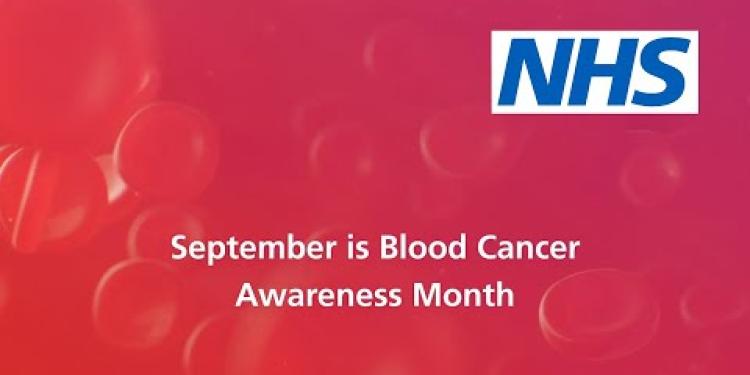
4 facts about blood cancer that you should know | NHS
Relevance: 60%
-
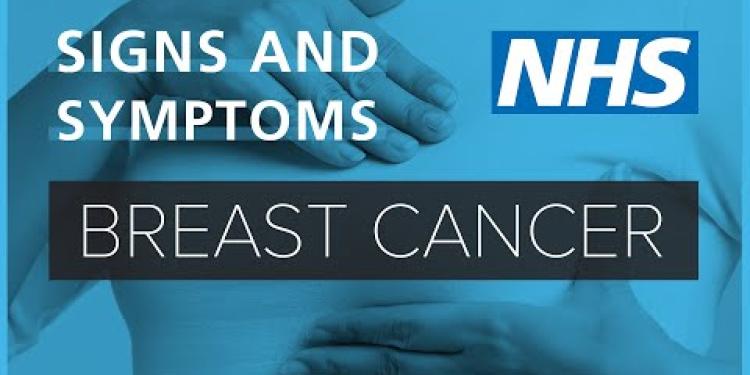
About Breast cancer - signs and symptoms | NHS
Relevance: 59%
-
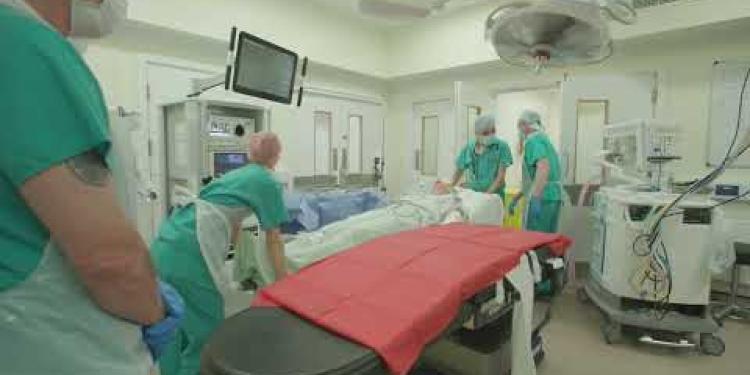
Prostate Surgery
Relevance: 59%
-
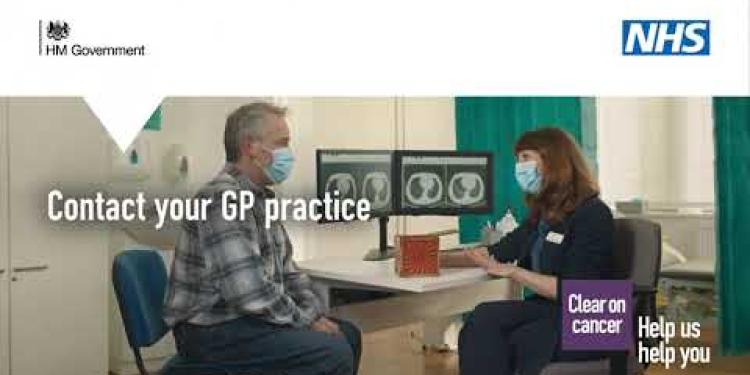
Don't carry the worry of cancer with you | NHS
Relevance: 59%
-

World Pancreatic Cancer Day - No Time to Wait
Relevance: 57%
-

Head and Neck Cancer Diagnosis
Relevance: 57%
-
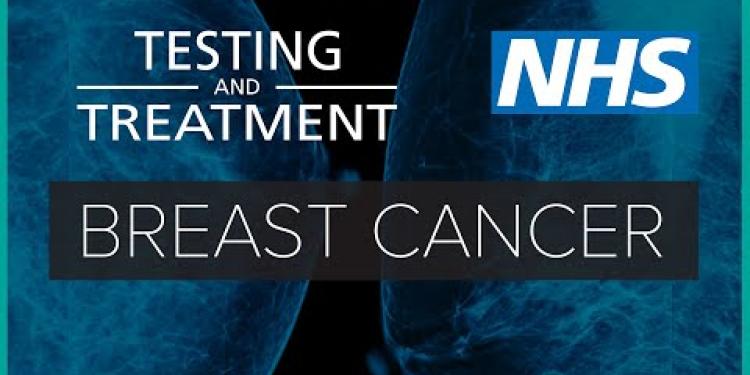
Breast cancer: testing and treatment | NHS
Relevance: 56%
-
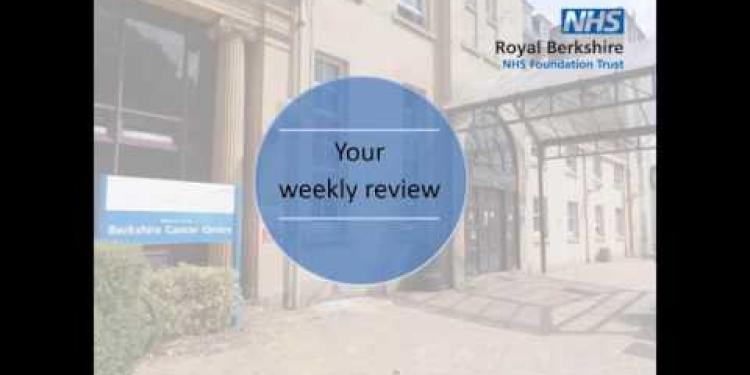
Royal Berkshire NHS Foundation Trust: Radiotherapy for prostate cancer
Relevance: 56%
-

Get cancer symptoms checked by your GP | NHS - BSL version
Relevance: 55%
-

Vaginal Cancer
Relevance: 54%
-

What is Radiotherapy, and its use in treatment for cancers?
Relevance: 53%
-
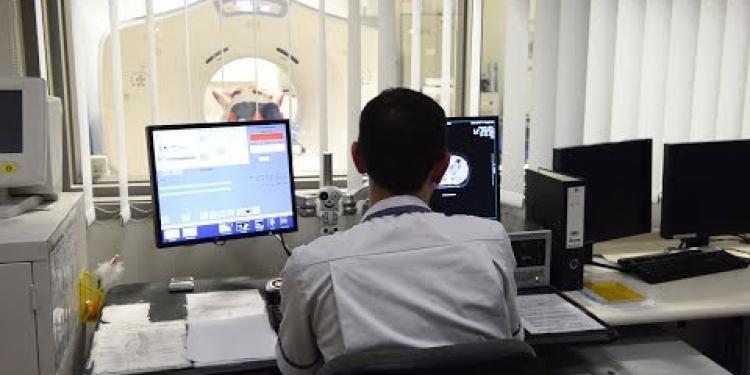
Having radiotherapy for breast cancer - 3 Videos
Relevance: 51%
-
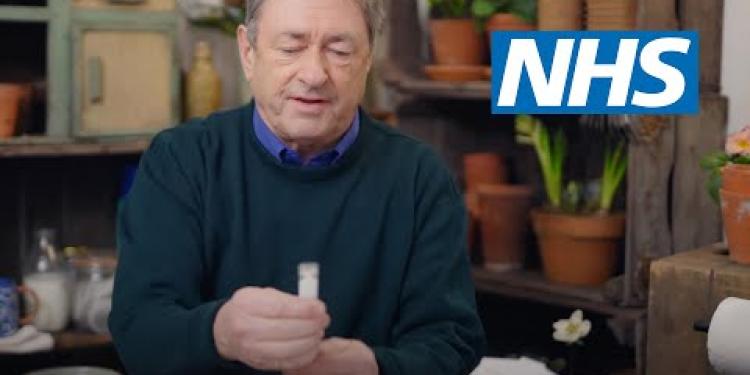
Bowel cancer screening: Alan Titchmarsh and Tommy Walsh | NHS
Relevance: 50%
-

Raising awareness of ovarian cancer
Relevance: 49%
-

Skin cancer education
Relevance: 49%
-
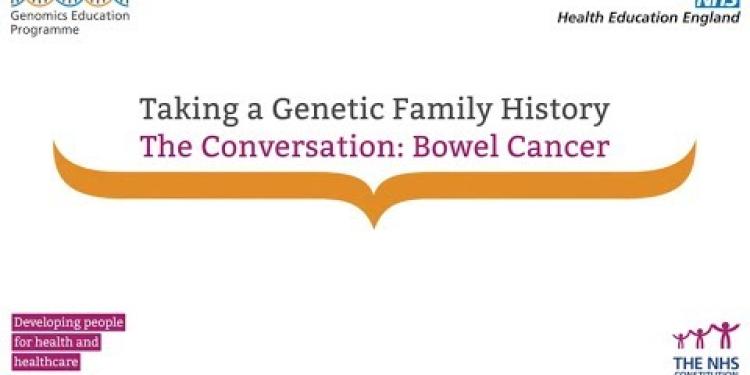
Taking a Genetic Family History - The Conversation (Bowel Cancer)
Relevance: 48%
-

Endometrial Cancer
Relevance: 48%
-

Getting to know your Testicles: Testicular Cancer Awareness with Dr James Howarth, Spilsby Surgery
Relevance: 48%
-

Mouth Cancer Awareness
Relevance: 48%
-

Genomics I: An overview of genomics in cancer care
Relevance: 45%
-

Vulval Cancer
Relevance: 42%
-

Hormone Therapy for prostate cancer
Relevance: 42%
-
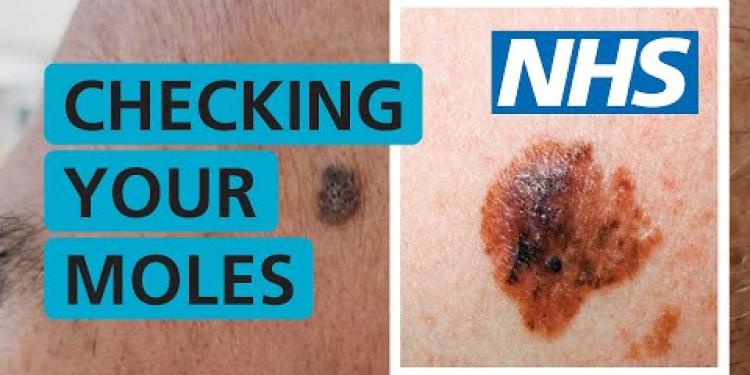
Skin Cancer - How do I check if my mole is skin cancer? | NHS
Relevance: 40%
-

What are PSA levels? - Prostate Cancer
Relevance: 39%
-

Mouth Cancer Infomercial
Relevance: 38%
Detecting prostate cancer early can offer several benefits:
- Improved Treatment Options: Early detection provides more treatment options. When prostate cancer is diagnosed at an early stage, it is often localized, making it easier to treat with less aggressive therapies such as surgery, radiation therapy, or active surveillance.
- Better Treatment Outcomes: Treating prostate cancer in its early stages can lead to better treatment outcomes and higher survival rates. Early-stage prostate cancer is more likely to be cured or controlled with treatment compared to advanced-stage cancer.
- Reduced Risk of Spread: Detecting prostate cancer early reduces the risk of the cancer spreading (metastasizing) to other parts of the body. Metastatic prostate cancer is more challenging to treat and is associated with poorer outcomes.
- Preservation of Quality of Life: Early detection and treatment of prostate cancer can help preserve quality of life by minimizing the side effects of treatment. Less aggressive treatments for early-stage prostate cancer, such as nerve-sparing surgery or focal therapies, aim to minimize the impact on urinary and sexual function.
- Long-term Survival: Early detection and treatment increase the chances of long-term survival. Prostate cancer detected at an early stage typically has a more favorable prognosis, with higher survival rates over the long term.
- Opportunity for Active Surveillance: In cases where prostate cancer is detected early and deemed low-risk, active surveillance may be a suitable option. Active surveillance involves closely monitoring the cancer with regular check-ups and tests, avoiding or delaying treatment unless the cancer shows signs of progression. This approach minimizes the risk of overtreatment and associated side effects.
- Peace of Mind: Regular prostate cancer screening and early detection can provide peace of mind for individuals at higher risk or with concerns about their prostate health. Knowing their prostate cancer status allows individuals to take proactive steps regarding their health and treatment options.
It's important to note that the decision to undergo prostate cancer screening should be based on individual risk factors, preferences, and discussions with a healthcare provider. Screening recommendations vary among medical organizations, and not all men will benefit equally from routine screening.
Prostate Cancer Symptoms and Early Detection
Understanding Prostate Cancer
Prostate cancer is a common cancer affecting men, particularly those aged 50 and above. The prostate is a small gland located below the bladder and in front of the rectum, responsible for producing seminal fluid. Early detection of prostate cancer significantly improves the prognosis and can lead to more effective treatment options.Common Symptoms of Prostate Cancer
Several symptoms may indicate the presence of prostate cancer. While some men may not experience noticeable symptoms in the early stages, others may observe changes that warrant medical attention. These symptoms include:- Frequent urination, especially at night
- Difficulty starting or stopping urination
- Weak or interrupted urine flow
- Blood in urine or semen
- Pain or discomfort in the pelvic area
- Erectile dysfunction
- Unexplained weight loss
The Importance of Regular Screening
Routine screening can help detect prostate cancer early, before symptoms become severe. Men in the United Kingdom aged 50 and older, or those with a family history of prostate cancer, should discuss screening options with their GP. Two common tests used for screening are:- Prostate-Specific Antigen (PSA) Test: Measures the level of PSA in the blood. Elevated levels can indicate prostate cancer or other prostate conditions.
- Digital Rectal Examination (DRE): Allows the doctor to physically examine the prostate gland for abnormalities.
When to Consult a Doctor
It is crucial to consult a healthcare professional if you experience any of the symptoms mentioned above. Early consultation can lead to early diagnosis and better treatment outcomes. Your GP may refer you to a specialist for further evaluation if necessary.Lifestyle Changes for Prevention
While some risk factors like age and family history cannot be changed, adopting a healthy lifestyle can help reduce the risk of prostate cancer. Consider the following tips:- Maintain a healthy diet rich in fruits, vegetables, and whole grains
- Exercise regularly to maintain a healthy weight
- Avoid smoking and limit alcohol consumption
- Regularly discuss any health concerns with your GP
Conclusion
Prostate cancer is a significant health concern for men in the UK. Recognising symptoms early and undergoing regular screenings can enhance the chances of successful treatment. If you notice any symptoms or have concerns about your prostate health, consult your GP promptly. Adopting a healthier lifestyle can also contribute to better prostate health and overall well-being.Finding Prostate Cancer Early Has Many Good Points:
- More Ways to Help: Finding prostate cancer early gives you more ways to treat it. If cancer is found early, it is usually in one place. This makes it easier to treat with less strong treatments, like surgery or radiation.
- Better Results: Treating prostate cancer early can give better results and help people live longer. Cancer found early is more likely to be cured or controlled than cancer found later.
- Stops the Spread: Finding cancer early can stop it from spreading to other parts of the body. Cancer that spreads is harder to treat.
- Keeps Life Good: Finding and treating cancer early helps people keep doing the things they enjoy. It keeps side effects small. Treatments that are not too strong help to keep urinary and sexual health.
- Living Longer: Finding and treating cancer early helps people live longer. The earlier cancer is found, the better the chances of living for a long time.
- Watching and Waiting: If cancer is found early and is not risky, sometimes watching it is enough. This means regular check-ups and tests without immediate treatment. This way, the side effects of treatment can be avoided if cancer does not get worse.
- Feeling Calm: Getting checked for cancer can help people feel calm. Knowing your cancer status helps you make good choices about your health.
Remember, deciding to get checked for prostate cancer is a personal choice. Talk to a doctor about your risk and what is best for you. Not everyone needs to get checked the same way.
Prostate Cancer Symptoms and Early Detection
Understanding Prostate Cancer
Prostate cancer is a common illness in men, especially those over 50 years old. The prostate is a small gland located below the bladder. It helps make some of the fluids for semen. Finding prostate cancer early can make treatment work better.Common Symptoms of Prostate Cancer
There are signs that might mean you have prostate cancer. Some men might not see any signs early on. Others might notice changes that need a doctor. Here are some signs to look for:- Needing to pee often, especially at night
- Trouble starting or stopping peeing
- Weak or stopping pee flow
- Blood in pee or semen
- Pain in the lower stomach area
- Trouble getting an erection
- Loss of weight without trying
The Importance of Regular Screening
Regular check-ups can find prostate cancer early. This is important before the signs get worse. Men aged 50 or older should talk to their doctor about tests. Tests include:- PSA Test: Checks the blood for higher levels of a special protein. High levels might mean cancer or other prostate issues.
- DRE: The doctor checks the prostate with a finger to feel for anything unusual.
When to Consult a Doctor
See your doctor if you have any of the signs above. Seeing a doctor early can help start treatment sooner. Your doctor may send you to a specialist if needed.Lifestyle Changes for Prevention
You can make changes in your life to help lower cancer risk. Here are some tips:- Eat healthy foods like fruits, veggies, and whole grains
- Exercise to keep a good weight
- Do not smoke and drink less alcohol
- Talk to your doctor if you have health concerns
Conclusion
Prostate cancer is a big health issue for men in the UK. Knowing the signs early and getting regular check-ups can help with treatment. If you see signs or worry about your prostate health, talk to your doctor. Living a healthy life can also help keep your prostate healthy.Frequently Asked Questions
What is prostate cancer?
Prostate cancer is a type of cancer that occurs in the prostate, a small walnut-shaped gland in men that produces seminal fluid.
What are the early symptoms of prostate cancer?
Early prostate cancer often has no symptoms, but some early warning signs can include frequent urination, especially at night, difficulty starting or stopping urination, and a weak or interrupted urine stream.
How common is prostate cancer in the UK?
Prostate cancer is the most common cancer in men in the UK, with around 47,500 new cases diagnosed every year.
What age group is most at risk for prostate cancer?
Prostate cancer mainly affects men over 50, and the risk increases with age.
Are there risk factors other than age for prostate cancer?
Yes, other risk factors include a family history of prostate cancer, being of African-Caribbean or African descent, and certain genetic changes.
Can prostate cancer be detected early?
Yes, early detection is possible through regular screenings, such as prostate specific antigen (PSA) tests and digital rectal exams (DRE).
What is a PSA test?
A PSA test measures the level of prostate specific antigen in your blood. High levels may indicate prostate cancer, but can also be caused by other prostate problems.
What should I do if I have symptoms of prostate cancer?
If you experience symptoms, it's important to consult your GP as soon as possible for further evaluation and testing.
What are the treatment options for prostate cancer?
Treatment options depend on the stage and grade of the cancer and can include active surveillance, surgery, radiation therapy, hormone therapy, chemotherapy, and other targeted therapies.
Can lifestyle changes reduce the risk of prostate cancer?
While there is no sure way to prevent prostate cancer, maintaining a healthy diet, regular exercise, and managing body weight may help lower your risk.
Is prostate cancer hereditary?
Having a family history of prostate cancer can increase your risk, especially if a first-degree relative (father or brother) was diagnosed with the disease.
How often should I get screened for prostate cancer?
Your GP can provide personalized advice, but generally, men over 50 are recommended to discuss screening options with their doctors.
What are the signs of advanced prostate cancer?
Advanced prostate cancer symptoms can include bone pain, unexplained weight loss, and swelling in the legs and feet due to spread to other parts of the body.
Can prostate cancer be cured?
When detected early, prostate cancer can often be treated successfully. Cure rates are high for early-stage prostate cancer, while advanced stages can be managed to prolong and improve quality of life.
Where can I get more information about prostate cancer?
You can visit trusted resources like the NHS website, Prostate Cancer UK, and Cancer Research UK for more comprehensive information on prostate cancer.
What is prostate cancer?
Prostate cancer is when bad cells grow in a man's prostate. The prostate is a small gland that helps make some of the fluid for sperm. Sometimes, these cells can grow too much and cause problems.
Signs to watch for:
- Needing to pee often, especially at night
- Trouble starting or stopping peeing
- Pain when peeing
If you or someone you know is worried about prostate cancer, it's important to talk to a doctor. They can check how healthy the prostate is.
Tools that can help:
- Talking with a trusted adult or friend
- Using simple health info websites
- Videos that explain health problems in a clear way
Prostate cancer is a kind of sickness that happens in the prostate. The prostate is a small gland in men. It is shaped like a walnut and makes fluid for sperm.
What are the early signs of prostate cancer?
Here are some early signs of prostate cancer:
- Trouble peeing
- Peeing more often, especially at night
- Weak or slow pee stream
- Feeling like you can't empty your bladder
- Pain or burning when peeing
- Blood in pee or sperm
- Pain in the back, hips, or pelvis
If you notice these signs, tell a doctor. It’s important to get checked.
Tools to help:
- Ask someone you trust to help you read.
- Use text-to-speech tools to listen to the information.
- Write down any questions to ask your doctor.
Prostate cancer at the start doesn't usually make you feel different. But there are some early signs you can look out for. You might need to pee a lot, especially at night. It might be hard to start or stop peeing. Your pee might come out slowly or stop and start.
It's important to get help. You can talk to a doctor or nurse. They can help you know what to do next.
Some things that can help you remember:
- Write down how often you need to pee.
- Share it with someone you trust. Maybe they can help you talk to a doctor.
- Don't be scared to ask questions. It's okay to ask the doctor to explain things in a simple way.
How many people get prostate cancer in the UK?
Lots of men in the UK get prostate cancer. It is a common illness.
If you want to know more or need help, you can:
- Talk to a doctor.
- Read simple books about prostate cancer.
- Use tools that read words out loud.
Prostate cancer is a type of cancer that happens to men. In the UK, it is the most common cancer for men. Each year, about 47,500 men find out they have prostate cancer.
Who can get prostate cancer the most?
Older men are more likely to get prostate cancer. Men who are 50 years or older should talk to their doctor.
Helpful tips:
- Ask simple questions when you see a doctor.
- Write notes if you have difficulty remembering.
- Bring a friend or family member to help you understand information.
Prostate cancer happens mostly to men who are older than 50 years old. The chance of getting prostate cancer goes up as men get older.
What else, besides age, can cause prostate cancer?
Yes, there are other things that can make the risk of prostate cancer higher. These include if someone in your family had prostate cancer, if you are African-Caribbean or African, and if you have certain changes in your genes.
You can use tools like pictures or videos to help understand better. You can also ask someone you trust to explain it to you. It's okay to ask questions if you need more help.
Can we find out about prostate cancer early?
Yes, doctors can find prostate cancer early. This means finding cancer before it gets big or spreads. This helps make treatment easier. People can have tests to check for prostate cancer. Sometimes, the doctor will use a special blood test or look at the prostate with a scan.
If you're worried, talk to a doctor. They can help explain and suggest what to do. It's important to ask questions if you don't understand.
Remember, talking with family and friends can help too. They can come with you to doctor's visits or help you remember what the doctor said.
Yes, it is possible to find problems early by having regular check-ups. These include PSA tests and DRE exams.
What is a PSA test?
A PSA test is a simple blood test.
Doctors use it to see if your prostate is healthy.
The prostate is a small gland in your body. Only men have it. It helps to make fluid for babies.
Here are some helpful tools:
- Ask an adult to go with you to the doctor.
- Use audiobooks if you like listening better than reading.
A PSA test is a blood test. It checks how much of something called prostate specific antigen is in your blood. If the levels are high, it might mean you have prostate cancer. But high levels can also be caused by other prostate issues.
If reading is hard, you might find it helpful to use tools like audiobooks or text-to-speech apps. You can also ask someone to read with you or use pictures to help understand the words.
What should I do if I feel signs of prostate cancer?
If you feel sick or have signs of illness, you should talk to your doctor quickly to see what is wrong and get help.
What can you do to treat prostate cancer?
If you have prostate cancer, there are ways to help. Talk to your doctor about what might work best for you. Here are some things that can help:
- Medicine: Doctors can give you medicine to help fight the cancer.
- Surgery: Sometimes, doctors need to remove the cancer through an operation.
- Radiation: This is a way to use special rays to kill cancer cells.
- Watchful waiting: Sometimes, doctors might just watch the cancer to see if it gets bigger or not.
It's important to talk with your doctor to choose what is best for you.
You can ask a friend or family member to go with you to the doctor.
Using tools like picture charts or recording the conversation can help you understand things better.
How we treat cancer depends on how serious it is. Here are some ways we can help:
- Watch and wait: This means checking the cancer often to see if it changes.
- Surgery: Doctors can take the cancer out of the body.
- Radiation therapy: This uses strong rays to kill cancer cells.
- Hormone therapy: This changes the hormones in the body to stop cancer.
- Chemotherapy: This uses medicine to kill cancer cells.
- Other special treatments: There are other new ways to fight cancer too.
Using pictures or videos can help explain these treatments. Talking with doctors and nurses can also help you understand better. You can also write down questions to ask at your doctor's appointment.
Can changing how we live help stop prostate cancer?
Some changes to how we live might help keep us healthy and lower the chance of getting prostate cancer. Here are a few easy tips:
- Eat healthy foods like fruits and veggies every day.
- Move your body by playing outside or doing sports.
- Try to stay at a healthy weight.
- Don't smoke and ask for help if you want to stop.
Remember, you can talk to a doctor or a trusted adult for more advice. Reading with a buddy or using pictures and videos can make learning easier too!
We can't stop prostate cancer for sure, but there are ways to help make it less likely. Eating healthy food, exercising often, and keeping a good weight can help.
Here are some tips to make these things easier:
- Healthy Food: Eat lots of fruits and vegetables. Try to add them to every meal.
- Exercise: Go for a walk, ride a bike, or play a sport you like. Try to move every day.
- Healthy Weight: Drink lots of water and choose smaller portions of food. This can help keep your weight in a good range.
If you need help understanding or doing these things, ask an adult you trust or a health helper for support.
Can prostate cancer run in families?
Sometimes, cancer of the prostate can run in families. This means if someone in your family had it, you might be more likely to get it too.
It helps to talk with a doctor. They can tell you how this works and what you should do.
Making a family tree of illnesses can help you see patterns. There are people who can help you make a family tree. Doctors and nurses can also give good advice and answer questions.
If your dad or brother had prostate cancer, you might get it too. This means your risk is higher.
How often should I check for prostate cancer?
It is important to check your body for prostate cancer. Talk to your doctor about when to get checked. They can help you decide how often you need to go. Stay healthy by getting regular check-ups.
Tips that may help:
- Ask a doctor or nurse if you have questions.
- Write down your appointments so you remember them.
- Take someone with you to help you listen and ask questions.
Your family doctor can give you advice just for you. Usually, men who are over 50 should talk to their doctors about health checks.
What happens when prostate cancer gets worse?
Signs that prostate cancer is getting worse can be:
- Pain in the bones
- Losing weight without trying
- Swelling in the legs and feet
This happens because the cancer has spread to other parts of the body.
If you have trouble reading, you can:
- Ask someone to read with you
- Use audiobooks
- Try text-to-speech tools
Can prostate cancer be fixed?
Yes, prostate cancer can sometimes be fixed. This means doctors can help make it go away. It is important to see a doctor to get the right help.
Some ways that can help are:
- Operations to take the cancer out.
- Special beams called radiation that kill cancer cells.
- Medicines that fight cancer.
If you need more help reading or understanding this, you can:
- Ask someone you trust to explain.
- Use apps that read text out loud.
If doctors find prostate cancer early, it can be treated well. When the cancer is caught early, there is a good chance it can be cured. Even if the cancer is more serious, doctors can help you live longer and feel better.
Where can I learn more about prostate cancer?
If you want to know more about prostate cancer, you can:
- Ask a doctor or nurse to help you.
- Go to a library and read books about it.
- Look at trusted websites for information. Ask someone to help if you need it.
- Join a support group to talk to others.
It's okay to ask questions! You can also use pictures, videos, or apps to help you understand better.
You can visit trusted websites like the NHS website, Prostate Cancer UK, and Cancer Research UK to learn more about prostate cancer.
Useful Links
Useful links from: Treating prostate cancer
- NHS - Prostate Cancer Overview This link provides comprehensive information on prostate cancer, including symptoms, diagnosis, treatment options, and living with the condition.
- Prostate Cancer UK Prostate Cancer UK is a leading charity offering support and information on prostate cancer, including treatments, support groups, and research initiatives.
- Macmillan Cancer Support - Prostate Cancer Macmillan Cancer Support provides detailed information on prostate cancer and its treatment, along with support services for patients and their families.
- Cancer Research UK - Prostate Cancer This resource from Cancer Research UK delivers in-depth information about prostate cancer, clinical trials, symptom management, and research advancements.
Useful links from: Prostate cancer diagnosis and tests
- NHS - Prostate cancer Comprehensive overview of prostate cancer, including symptoms, risk factors, diagnosis, and treatment options.
- Prostate Cancer UK - Diagnosis & Tests Details on various tests used to diagnose prostate cancer, such as PSA tests, biopsies, and MRI scans provided by Prostate Cancer UK.
- Cancer Research UK - Prostate cancer tests Information on the different tests and diagnostic procedures for prostate cancer, provided by Cancer Research UK.
- Macmillan Cancer Support - Prostate cancer tests Supportive resource that covers the types of tests used to diagnose prostate cancer, offered by Macmillan Cancer Support.
Useful links from: Living with prostate cancer
- NHS - Prostate Cancer Provides information about prostate cancer symptoms, diagnosis, treatment options, and support services available on the NHS.
- Prostate Cancer UK Offers comprehensive resources on living with prostate cancer, including information on treatments, support groups, and fundraising.
- Macmillan Cancer Support - Prostate Cancer Provides support for people affected by prostate cancer, including medical information, emotional support, and financial advice.
- Cancer Research UK - Prostate Cancer Detailed information on prostate cancer symptoms, causes, treatment options, and research developments.
Useful links from: Why do men get prostate cancer?
- NHS - Prostate Cancer Overview This NHS page provides a comprehensive overview of prostate cancer, including causes, symptoms, diagnosis, treatment, and prevention.
- Prostate Cancer UK - What is Prostate Cancer? Prostate Cancer UK offers detailed information about what prostate cancer is, symptoms, risk factors, and treatment options.
- Macmillan Cancer Support - Prostate Cancer Causes and Risk Factors Macmillan provides information on the causes and risk factors for developing prostate cancer, including genetic and lifestyle factors.
- Cancer Research UK - Prostate Cancer Cancer Research UK covers the causes, symptoms, diagnosis, and treatment of prostate cancer, along with current research and statistics.
Useful links from: Hormone Therapy for prostate cancer
- NHS - Hormone Therapy for Prostate Cancer Comprehensive information from the NHS on hormone therapy for prostate cancer, including how it works, who can have it, and what you need to consider.
- Prostate Cancer UK - Hormone Therapy Detailed guide by Prostate Cancer UK on hormone therapy, covering the benefits, side effects, and practical advice for those considering or undergoing treatment.
- Macmillan Cancer Support - Hormone Therapy for Prostate Cancer Macmillan Cancer Support provides an overview of hormone therapy, including what to expect, side effects, and living with hormone therapy.
- Cancer Research UK - Hormone Therapy for Prostate Cancer Cancer Research UK's resource on hormone therapy for prostate cancer, explaining the types of hormone therapy, how it's administered, and managing side effects.
Useful links from: Ask for a prostate specific antigen (PSA) test along with your annual cholesterol check.
- NHS - Prostate specific antigen (PSA) test The NHS page provides information about the PSA test, which helps detect prostate cancer, including details about the procedure, when it's suggested, and potential risks.
- Prostate Cancer UK - PSA Test Prostate Cancer UK's guide to the PSA test, including what to expect, understanding your results, and the pros and cons of the test.
- NHS - High Cholesterol NHS information on cholesterol, including how it's tested, understanding the results, risk factors, prevention, and management of high cholesterol.
- British Heart Foundation - High Cholesterol The British Heart Foundation provides insights into why cholesterol matters, how to manage and reduce it, and lifestyle changes to maintain a healthy heart.
Useful links from: What are PSA levels? - Prostate Cancer
- NHS - Prostate cancer The NHS page on prostate cancer provides comprehensive information about the condition, including symptoms, causes, diagnosis, treatment options, and living with prostate cancer. There is detailed information regarding PSA tests and their role in diagnosing prostate cancer.
- Prostate Cancer UK - PSA Test Prostate Cancer UK's page on PSA tests explains what the PSA test is, how it is used in the diagnosis of prostate cancer, its benefits, limitations, and considerations before having the test.
- Cancer Research UK - Prostate Cancer This page from Cancer Research UK offers detailed information on prostate cancer including its stages, symptoms, causes, and treatment. It provides insights into PSA levels and how they relate to prostate cancer diagnosis and monitoring.
- Macmillan Cancer Support - Prostate Cancer Macmillan Cancer Support provides a guide to understanding prostate cancer, including details about the PSA test, its significance, risks, benefits, and what to expect if the test results are higher than normal.
Useful links from: Am I more at risk of prostate cancer?
- NHS - Prostate Cancer Overview Provides comprehensive information on prostate cancer, including symptoms, causes, diagnosis, and treatment options.
- Prostate Cancer UK - Risks and Causes An informative guide on the risk factors associated with prostate cancer, detailing how age, family history, and lifestyle can contribute to the disease.
- Cancer Research UK - Prostate Cancer Risk Factors Offers detailed information on what increases your risk of developing prostate cancer and how to potentially lower your risk.
- Macmillan Cancer Support - Understanding Prostate Cancer Risk Provides an overview of the factors that may affect your risk of prostate cancer, with suggestions for managing those risks.
More Videos of Interestdiagnosis
Related Videosdiagnosis
Have you found an error, or do you have a link or some information you would like to share? Please let us know using the form below.
- Ergsy carfully checks the information in the videos we provide here.
- Videos shown by Youtube after a video has completed, have NOT been reviewed by ERGSY.
- To view, click the arrow in centre of video.
- Most of the videos you find here will have subtitles and/or closed captions available.
- You may need to turn these on, and choose your preferred language.
- Go to the video you'd like to watch.
- If closed captions (CC) are available, settings will be visible on the bottom right of the video player.
- To turn on Captions, click settings .
- To turn off Captions, click settings again.









